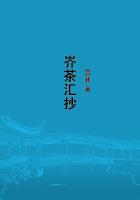VII. -- Ed .] that it depends wholly on the role which the material components play in a particular labour-process, on their function -- whether they function as instruments of labour, material of labour, or products -- so instruments of labour are fixed capital only if the process of production is really a capitalist process of production and the means of production are therefore a really capital and possess economic definiteness, the social character of capital. And in the second place, they are fixed capital only if they transfer their value to the product in a particular way. If not, they remain instruments of labour without being fixed capital. In the same way if auxiliary materials like manure give up value in the same peculiar manner as the greater part of the instruments of labour, they become fixed capital although they are not instruments of labour. It is not a question here of definitions, which things must be made to fit. We are dealing here with definite functions which must be expressed in definite categories.
If to be capital laid out in wages is considered one of the qualities of means of subsistence as such under all circumstances, then it will also be a quality of this "circulating" capital "to support labour." (Ricardo, p. 25.) If the means of subsistence were not "capital" they would not support labour-power; whereas it is precisely their quality of capital that endows them with the faculty of supporting capital by foreign labour.
If means of subsistence as such are circulating capital -- after the latter had been converted into wages -- it follows further that the magnitude of wages depends on the ratio of the number of labourers to the given amount of circulating capital -- a favourite economic proposition -- while as a matter of fact the quantity of means of subsistence withdrawn from the market by the labourer, and the quantity of means of subsistence available for the consumption of the capitalist, depend on the ratio of the surplus-value to the price of labour.
Ricardo, like Barton, [29a] everywhere confounds the relation of variable to constant capital with that of circulating to fixed capital. We shall see later to what extent this vitiates his investigation of the rate of profit. [Karl Marx, Capital , Vol. III, Ch. I-III.
-- Ed .]
Ricardo furthermore identifies the differences which arise in the turnover from other causes than the distinction between fixed and circulating capital with this distinction: "It is also to be observed that the circulating capital may circulate, or be returned to its employer, in very unequal times. The wheat bought by a farmer to sow is comparatively a fixed capital to the wheat purchased by a baker to make into loaves. The one leaves it in the ground, and can obtain no return for a year; the other can get it ground into flour, sell it as bread to his customers, and have his capital free, to renew the same, or commence any other employment in a week." [30]
It is characteristic here that wheat, although not serving as a means of subsistence but as raw material when used for sowing, is in the first place circulating capital, because in itself it is a means of subsistence, and in the second placed fixed capital, because its return takes over a year. However it is not only the more or less slow or rapid return which makes a fixed capital of a means of production, but also the definite manner in which it transfers its value to the product.
The confusion created by Adam Smith has brought about the following results:
1. The distinction between fixed and circulating capital is confused with that between productive capital and commodity-capital. For instance a machine is considered circulating capital when in the market as a commodity, and fixed capital when incorporated in the process of production. Moreover, it is absolutely impossible to ascertain why one kind of capital should be more fixed or circulating than another.
2. All circulating capital is identified with capital laid out or to be laid out in wages. This is so in John Stewart Mill, [J. St. Mill, Essays on Some Unsettled Questions of Political Economy , London, 1844, p. 164. -- Ed . ] and others.
3. The distinction between variable and constant capital, which was previously mistaken by Barton, Ricardo, and others for that between circulating and fixed capital, is finally wholly reduced to this last-named distinction, for instance in Ramsay, where all means of production, raw materials, etc., as well as instruments of labour are fixed capital, and only capital laid out in wages is circulating capital. [G. Ramsay, An Essay on the Distribution of Wealth , Edinburgh, 1833, pp. 21-24. -- Ed .] But because the reduction takes place in this form, the real distinction between constant and variable capital is not understood.
4. The latter-day British, especially Scotch, economists, who look upon all things from the inexpressibly narrow-minded point of view of a bank clerk, such as MacLeod, [H. D. MacLeod, The Elements of Political Economy , London, 1858, pp. 76-80. -- Ed .] Patterson, [R. H.
Patterson, The Science of Finance. A Practical Treatise, Edin- burgh and London, 1868, pp. 129-44. -- Ed .] and others, transform the distinction between fixed and circulating capital into one between money at call and money not at call.
NOTES
[25] Ricardo, Principles , etc., p. 25.
[26] Loc. cit.
[27] Ricardo, Principles , etc., p. 26.
[28] Ibid.
[29] Ibid.
[29a] Observations on the Circumstances Which Influence the Condition of the Labouring Classes of Society , London, 1817. A pertinent passage is quoted in Book I, p. 655, Note 79.
[English edition: p. 631, Note 1.]
[30] Principles , etc., pp. 26and 27.















